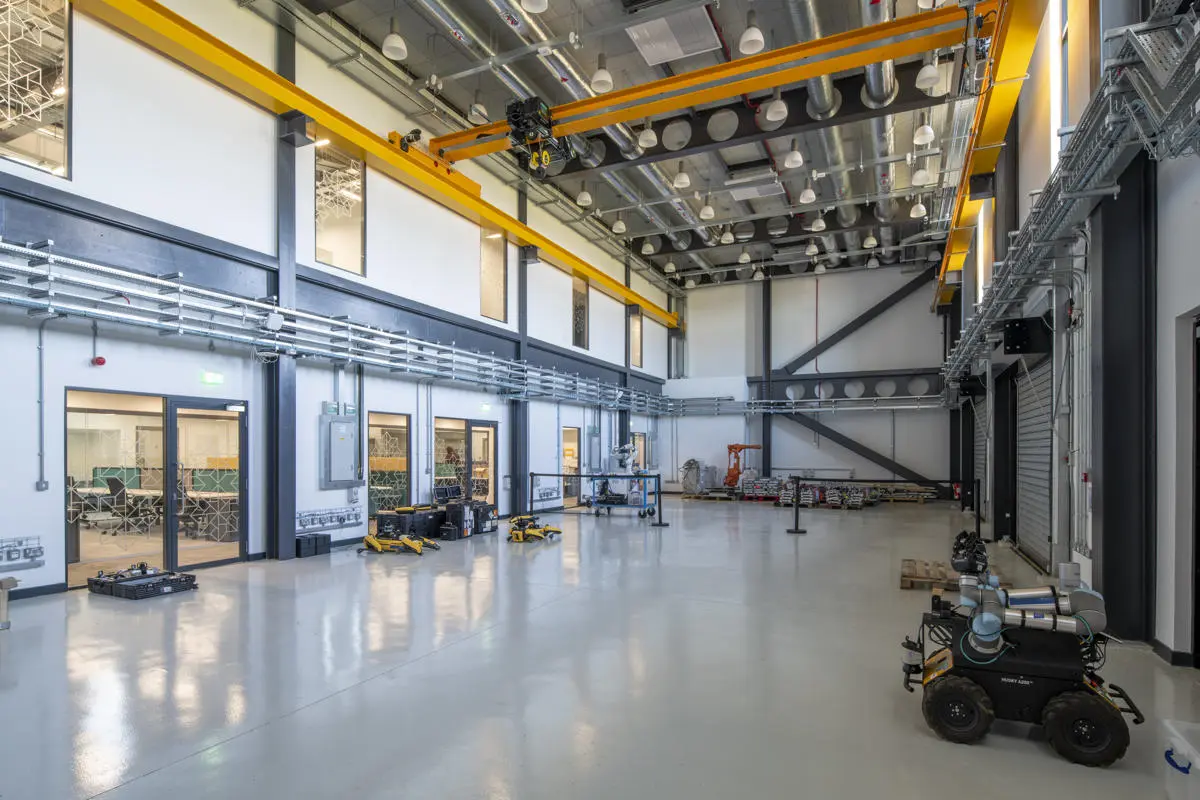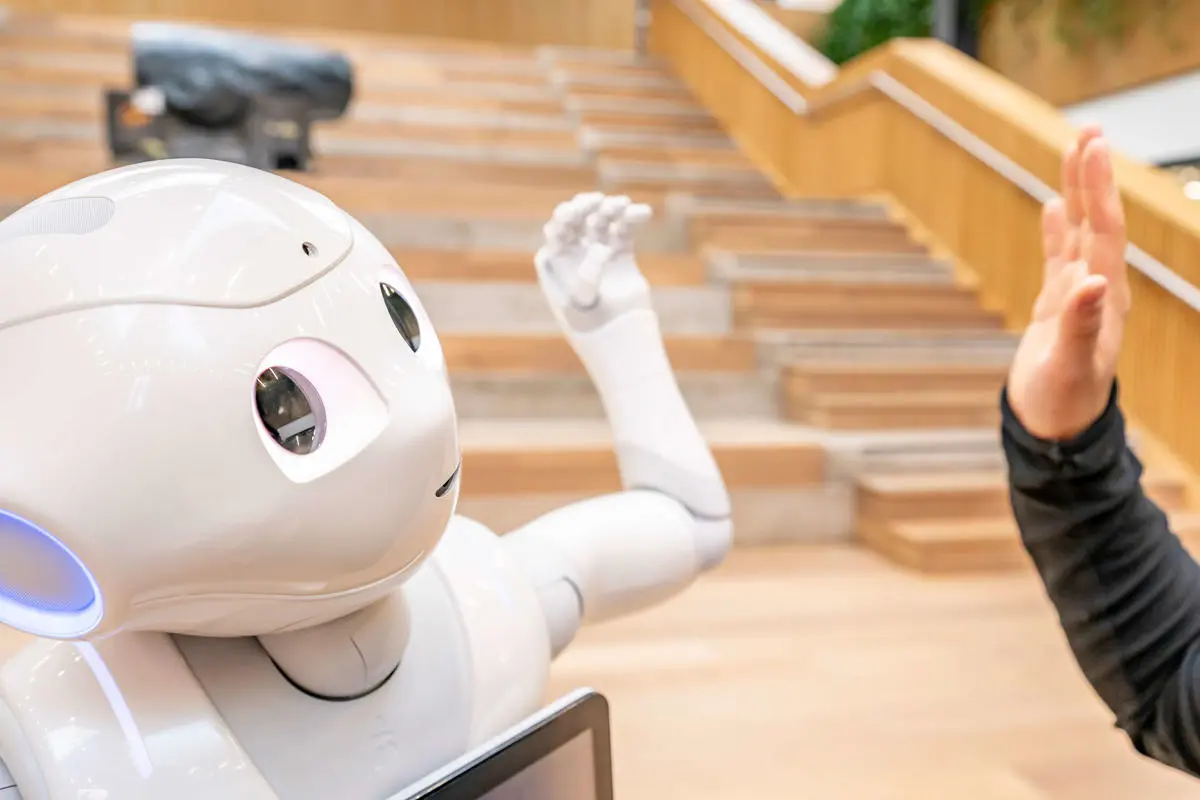
The National Robotarium
As global leaders in robotics and engineering, Heriot-Watt University is the ideal location for the National Robotarium, the UK’s centre for robotics and artificial intelligence.
Its bespoke £22.4m facility spans 40,000sq ft and is home to three distinct areas of research and development; Robotics and Autonomous Systems (RAS), Human-Robot Interaction (HRI), and Precision Laser Applications (PLA), providing a range of labs, offices and flexible spaces for science, engineering and industry to work collaboratively under one roof.
One of six Data-Driven Innovation hubs, funded in partnership with The University of Edinburgh as part of the £1.5bn Edinburgh and South-East Scotland City Region Deal, this national, and international facility, has unrivalled technology, labs, and equipment central to the development and testing of robotics and AI solutions.
With its dedicated team of robotics engineers and researchers, they create innovative solutions to global challenges, working directly with industry to test and develop robotics, AI and automated technologies, rapidly moving pioneering science from lab to market.
Through its connection with Edinburgh Centre for Robotics, The National Robotarium fosters the teaching and development of the next generation of roboticists, producing highly-skilled graduates who are trained to conduct world-leading research with a market focus, and development engagement and learning programmes to equip the current and future workforce with robotics, data, computer science and other STEM skills.
A full list of research themes can be found at this link.
Reaping the rewards of the robotics revolution: our 5-point plan
The National Robotarium
Unrivalled facilities and world-leading expertise in robotics, artificial intelligence and autonomous systems.
The National Robotarium leads student project with industry partners Thermo Fisher Scientific
The establishment of The National Robotarium, thanks to funding from both the UK and Scottish Governments, has delivered a global centre of excellence that is advancing robotics science and technology to address real-world challenges and improve people’s lives, work and health.Stewart Miller, CEO at the National Robotarium
Get in touch
Heriot-Watt’s Global Research Institutes (GRIs) are centres of excellence and collaboration, created to address global challenges by leveraging our global reach, our significant international collaborations and our long-standing connectivity to business and industry.
Professor Richard A. Williams, Principal and Vice-Chancellor
Together, we shape the future.
Since 1821 we have been at the forefront of new ideas and solutions, creating radical innovations that make a difference in the real world. Heriot-Watt has an established reputation as a dynamic facilitator of successful strategic alliances. The University aims to solve problems of real significance to society by excelling in business and enterprise.








